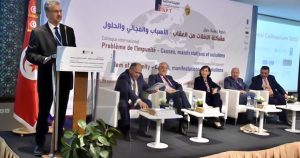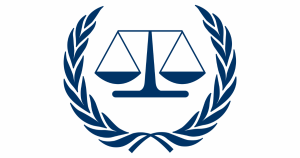No Peace Without Justice
Statement delivered by Gianfranco Dell’Alba, Secretary-General of No Peace Without Justice, during the ASP General Debate, 15 November 2008
“Mr President, Excellencies, Distinguished delegates, Participants:
My name is Gianfranco Dell’Alba and I am Secretary-General of No Peace Without Justice. It is an honour for me to address this Seventh Session of the ICC Assembly of States Parties on behalf of my organisation, which together with the Transnational Radical Party and many of you here today, has had the privilege to be part of this growing international criminal justice system since the early beginning.
It has been a hard journey, full of difficulties, but it has been a successful one, thanks to the dedicated efforts of States, civil society and the ICC itself. In an ideal world, we would be past any danger and the ICC could focus on its ongoing development, safe from the threat of attack, and we could focus on our common goal of developing this international criminal justice system. Indeed, we join many others in hoping the new American Administration will see the ICC as a means of realising this shared goal.
But the difficulties I mentioned earlier are not past, and even as we support the Court in developing its vision as a universal institution that is responsive to the needs and aspirations of populations affected by conflicts, we must continue to confront and overcome the looming threats. One such threat is the attempt, gaining strength in recent months, to paint the Court as “anti-African”. This idea has consistently been put forward by people who seem to want to adopt an appeasement approach towards perpetrators of crimes under international law. They paint the ICC as a colonialist institution, discounting the fact that three of the four cases before the Court were referred by African countries themselves. They resurrect the phantom of a rogue ICC Prosecutor and they place an undefined peace above justice, all under claims of realism.
These notions risk undermining the Court, particularly when they are suggested by those who are supposed to be the most supportive of the Court. The modern trend too often seems to be in favour of some form of amnesty in return for ceasefires, based on a perceived imperative to balance the need for justice with the need for short-term solutions to a conflict. But what it really means is to sacrifice justice at the altar of a so-called peace; what it really leads to is a double sacrifice, in which the absence of justice also destroys the prospects for long-term peace.
We must stand firm in the face of these attempts to tear the fabric of this new international criminal justice system before it has had a chance to grow a protective shield, based on history of success, including support and acceptance from populations in situation countries, who are best placed to denounce the attempts to deny justice. Distinguished delegates, we urge you to play your part in supporting the Court. Not just through cooperation, ratification and implementation, although these are important. They are, in fact, necessary for the Court to function as effectively and efficiently as possible and we urge all States to fulfil these obligations, and especially urge Italy – the birthplace of the Rome Statute and of No Peace Without Justice – to enact implementing legislation as soon as possible.
What is imperative, especially now, is a consistent and strong message that international criminal justice is an essential tool for post-conflict restoration, together with peace, development, human rights and democracy. In the face of silence or, even worse, equivocation dressed up as realism, those who would evade justice are emboldened to cling to power and to cling to impunity and the status quo, which too often includes the commission of crimes within the jurisdiction of the Court. You have a responsibility to be firm in support of the Court and in support of our shared goal: an end to impunity and ensuring redress for victims.
You also have a responsibility to help the Court strengthen its work and to encourage it to be the universal, responsive institution it is striving to become. In this, there is a major conceptual and operational shift that needs to be made. The reality of war crimes, crimes against humanity and genocide is a far cry from the city in which we meet today. But a stunning majority of the Court’s staff are based here, in The Hague.
The ICC would be more responsive and be better known to the people it is trying to serve if it is closer to them. We welcome the efforts and work being done by the Registrar to meet this need and we welcome her indications that the Court sees moving to the field as a reform priority. In support of that move, we urge you, and through you the Court, to consider the ICC’s expenditure and staff deployment in The Hague compared with expenditure and deployment in the field. This Assembly has a special role in providing policy direction and support. We wish one day to see much of the work of the Court to be undertaken in the affected countries directly.
Allow me to conclude by wishing the best to the new Registrar, Silvana Arbia, for the work that awaits her, and by thanking warmly the President, Philippe Kirsch, and the Prosecutor, Luis Moreno-Ocampo, for having brought the Court to where it is.
Thank you”




